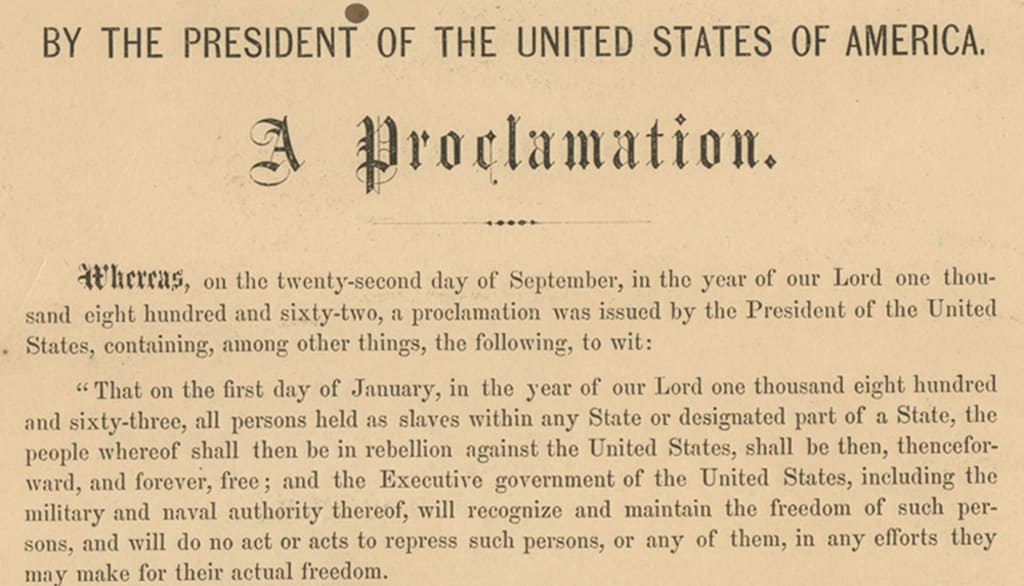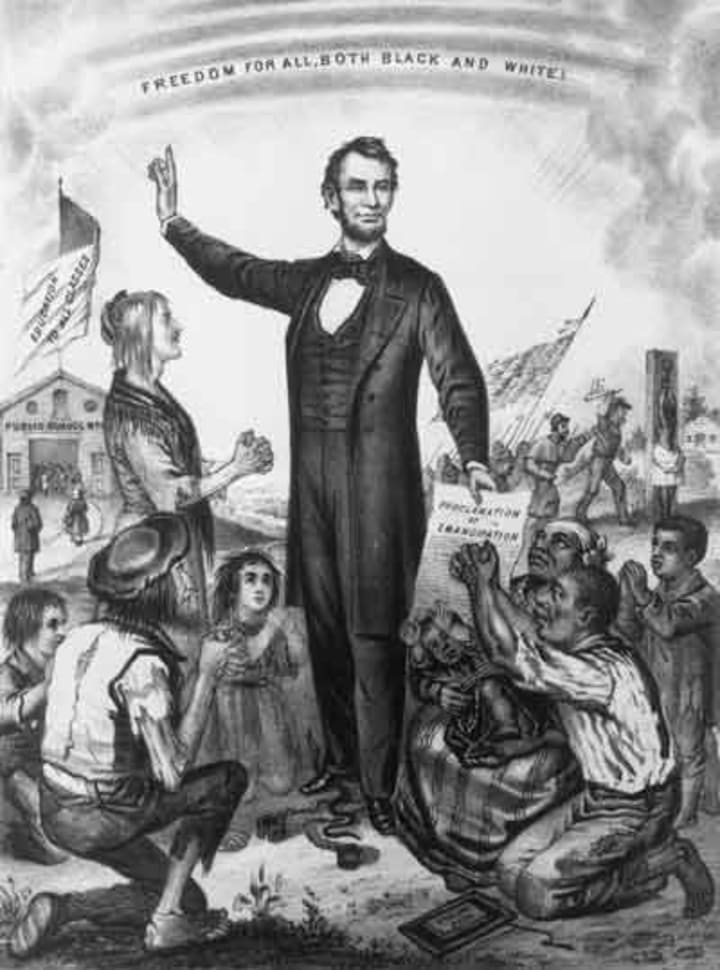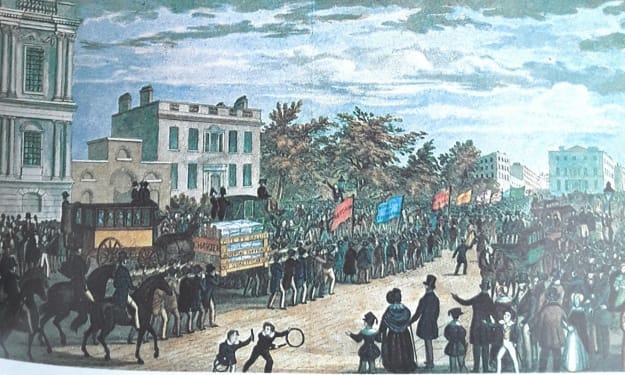Abraham Lincoln's Emancipation Proclamation
His motives had much more to do with politics than human rights

The American Civil War is often regarded as the culmination of Abraham Lincoln’s campaign to end slavery, but that is an over-simplification of his motives. His Emancipation Proclamation can be seen as having had an ulterior motive.
The Emancipation Proclamation of 1863
Abraham Lincoln announced, on 22nd September 1862, that all four million slaves within the Confederacy would henceforth be free. The date of the Proclamation is usually given as 1863, because it was set to come into effect on 1st January of that year.
However, the Civil War between the northern United States and southern Confederate States was still at its height, so the beneficiaries of the Proclamation had another two years to wait before they would be able to gain their freedom.
Lincoln’s motivation
Lincoln’s prime purpose in waging the Civil War was to keep the Union intact. Although the main distinguishing feature of the southern states was that they were slave states as opposed to free ones, this was not as clear-cut a division as might be supposed. There was the not-so-small matter of four states (Missouri, Kentucky, Delaware and Maryland) that were slave states but which did not join the Confederacy at any stage but stayed loyal to the Union.
At first, Lincoln had no intention of antagonising these “border states” by making a moral issue out of slavery. The Union always came foremost in this thinking. Indeed, he actually stated:
“If I could save the Union without freeing any slaves I would do it. If I could save it by freeing all the slaves I would do it. If I could save it by freeing some and leaving others alone, I would do it”.
However, Lincoln was also fully aware that slavery was an economic issue for the states of the Deep South. Without the huge (not to mention cheap) workforce that slavery provided, the cotton and tobacco plantation would be unmanageable. As with many matters, economics trumps morality, and so an attack on slavery would strike a blow at the South’s ability to earn a living.

A cynical move?
By the time that Lincoln issued his Proclamation, he realised that the Union would only be saved through military victory. However, battlefield triumphs were thin on the ground during the early part of the War. What he needed was the opportunity to strike a double blow at the South, both militarily and economically.
The Battle of Antietam on 17th September 1862 gave Lincoln the chance he sought, although the battle was more of a “score draw” than an outright victory. Five days later he issued his Proclamation, which gave him the added bonus of occupying the moral high ground. However, as noted earlier, the practical implication of the Proclamation could not come into effect until after the military campaign had been won.
In Lincoln’s revised view, the Union could be saved more effectively as a slave-free country than a half-and-half one, so that is the route he chose. His moral stand had a huge amount of pragmatism behind it once it became clear that the border states would not change sides with the war turning in the Union’s favour.
So was the Proclamation a cynical move on Lincoln’s part? What did he really think about the institution of slavery as a moral issue? Given that many southerners actually defended slavery on moral grounds – they claimed that it was part of God’s plan that black men should remain subservient to white men – the moral case was not as clear-cut at the time as it appears to us today. Had events taken a different course, would Abraham Lincoln have issued his Proclamation at all?
About the Creator
John Welford
I am a retired librarian, having spent most of my career in academic and industrial libraries.
I write on a number of subjects and also write stories as a member of the "Hinckley Scribblers".






Comments
There are no comments for this story
Be the first to respond and start the conversation.